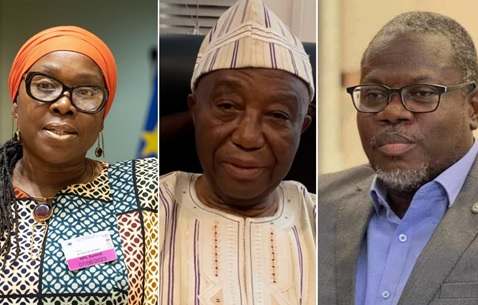MONROVIA, LIBERIA – The Executive Director of the Inter-Governmental Action Group Against Money Laundering in West Africa (GIABA), Mr. Edwin W. Harris, Jr., has called for deeper collaboration between academia and anti-money laundering agencies to combat the twin issues of money laundering (ML) and terrorist financing (TF). Speaking during the 7th Regional Inter-Universities Speech Contest on December 3, 2024, in Monrovia, Harris emphasized the crucial role of education in addressing these crimes and fostering regional development.
In his opening remarks, Harris described ML and TF as major obstacles to progress in West Africa, citing their devastating impacts on regional security, economic stability, and governance. “These crimes erode the reputation of member states, deter foreign direct investment, distort political and financial systems, and undermine confidence in our institutions,” Harris stated.
GIABA, established in 2000 by the Economic Community of West African States (ECOWAS), has a mandate to protect regional economies from the abuse of financial systems and to support global efforts against ML and TF. The agency serves as a Financial Action Task Force (FATF)-Styled Regional Body, tasked with assessing member states’ compliance with international anti-money laundering (AML) and counter-financing of terrorism (CFT) standards.
Since its inception, GIABA has initiated measures to strengthen AML/CFT frameworks across member states. These include developing national strategies, establishing inter-ministerial committees, enhancing the capacity of financial intelligence units, and raising public awareness. Additionally, GIABA has conducted extensive research and published reports on issues such as tax fraud, small arms trafficking, and the nexus between insurgency and money laundering.
“Despite commendable progress, the fight against ML/TF requires collective and concerted efforts,” Harris noted. He underscored the dynamic nature of criminal activities and the need for collaboration with educational institutions to stay ahead of emerging threats.
Harris called on universities to incorporate AML/CFT courses into their curricula, foster discussions on related issues, and equip students to contribute effectively to national and regional efforts. “Educational institutions are logical places for early intervention against social ills,” Harris said. “They play a critical role in molding future leaders and addressing the menace of money laundering and terrorist financing.”
The 7th Regional Inter-Universities Speech Contest, hosted in Monrovia, brought together student representatives from Senegal, Togo, Côte d’Ivoire, Benin, Guinea-Bissau, and Cabo Verde. The initiative, launched in 2013, aims to deepen students’ understanding of AML/CFT issues and promote regional cooperation.
Harris expressed optimism about the exchange of ideas during the event, emphasizing the contest’s potential to highlight the adverse effects of ML and TF on economic development, political stability, and human security.
As he concluded, Harris urged stakeholders, including national authorities, institutions, and the general public, to commit to the fight against ML and TF. “GIABA’s efforts will remain limited without strong commitments at national and institutional levels,” he stressed. “We must collectively prevent criminals from undermining the credibility of our financial systems and economies.”







